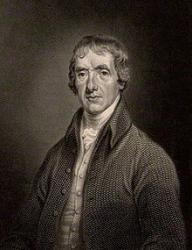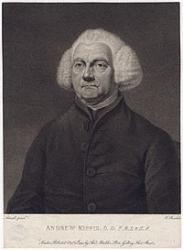Planning worship?
Check out our sister site, ZeteoSearch.org,
for 20+ additional resources related to your search.
- |
User Links
Person Results
‹ Return to hymnal


Export as CSV
F. G. Lee
1832 - 1902 Hymnal Number: d880 Author of "Speak gently to the erring one [ones]" in The Church Hymn Book Lee, Frederick George, D.D., born in 1832, educated at St. Edmund Hall, Oxford (S. C. L. 1854), and Vicar of All Saints, Lambeth, since 1867. Author of a large number of works (see Crockford, 1891). His hymns "Laud the grace of God victorious" (St. Alban), and "When day's shadows lengthen" (Old Age), appeared in the People's Hymnal, 1867.
--John Julian, Dictionary of Hymnology, Appendix, Part II (1907)
===========
Born: January 6, 1832, Thame, Oxfordshire, England.
Died: January 2, 1902, Lambeth, London, England.
Lee attended Cuddesdon Theological College in Oxfordshire, and was ordained an Anglican minister in 1856. He served at St. John’s Church in Aberdeen. In 1867, he moved to All Saints’ Church in Lambeth, where he ministered to the poor for 32 years. He wrote a number of works in history, archaeology, theology, and poetry, and edited journals and newspapers. Retiring from All Saints’ in 1899, he converted to Roman Catholicism two years later.
--www.hymntime.com/tch
F. G. Lee
Helen E. Brown
1801 - 1900 Hymnal Number: d61 Author of "At Jacob's well a stranger sought" in The Church Hymn Book
Helen E. Brown
Robert Carr Brackenbury
1752 - 1818 Person Name: R. C. Brackenbury Hymnal Number: d634 Author of "My son, know thou the Lord" in The Church Hymn Book Brackenbury, Robert Carr, of an old Lincolnshire family, was born at Panton House, in that county, in 1752. He entered into residence at St. Catherine's Hall, Cambridge, but joining the Wesleys, he left without taking a degree, and became a minister of the Methodist denomination. In that capacity he visited Guernsey, Jersey and Holland. He retired from active work in 1789, and died at his residence, Raithby Hall, near Spilsby, Aug. 11, 1818.
His works include:—(1) Sacred Poems, in 3 parts, Lond., 1797; (2) Select Hymns, in 2 parts, Lond., 1795; (3) Sacred Poetry; or Hymns on the Principal Histories of the Old and New Testaments and on all the Parables, Lond., 1800, and some prose publications. He also edited and altered William Cruden's Divine Hymns, n.d. The hymn, "Come, children, 'tis Jesus' command," was given in J. Benson's Hymns for Children, 1806. It does not appear in any of Brackenbury's works. Mrs. Smith, daughter of Dr. Adam Clarke, has included several incidents in his life in her Raithby Hall.
-- John Julian, Dictionary of Hymnology (1907)
Robert Carr Brackenbury
Benjamin Cleveland
1733 - 1811 Person Name: B. Cleveland Hymnal Number: d678 Author of "O could I find from day to day" in The Church Hymn Book Cleveland, Benjamin. Probably a Baptist, but known only by his Hymns on Different Spiritual Subjects, in Two Parts, whereof the 4th ed. appeared in Norwich, Connecticut, 1792. He is the author of:—
0 could I find from day to day. [Longing for Christ.] This was preserved from oblivion by the Hartford Selection 1799, and is now in general use as altered and abridged to 4 stanzas by Nettleton, in his Village Hymns, 1824, No. 145. What is supposed to be the original text of the first four stanzas is found in Dr. Hatfield's Church Hymn Book, 1872, No. 876. [Rev. F. M. Bird, M.A.]
--John Julian, Dictionary of Hymnology (1907)
============================
Cleveland, Benjamin. (Windham, Connecticut, August 30, 1733--March 9, 1811, Horton [now Wolfville], Nova Scotia). Baptist. Son of Benjamin Cleveland. The name is sometimes spelled "Cleavland" or "Cleaveland" in family records. He was a layman and a Baptist deacon; little else is known of his life except that of his twelve children, one, Nathan Cleveland, became a Baptist minister. He published in 1792 his Hymns on Different Subjects. In Two Parts in Norwich, Connecticut. His hymn, "O could I find from day to day," was widely reprinted through most of the nineteenth century. In his 1792 collection, it had six stanzas. Joshua Smith reprinted it in 1797, and it was altered for the Hartford Selection of 1799. Asahel Nettleton abridged it to four stanzas and altered it for his Village Hymns in 1824. It was in this form that it was widely sung; it was reprinted in the same for in Edwin Francis Hatfield's Church Hymn Book, 1872. the original first four stanzas treat the desire to "find from day to day a nearness to my God" throughout the course of life, ending in stanza 4 "Thus, till my last expiring breath, Thy goodness I'll adore . . ."
--Thomas W. Hunt, DNAH Archives
Benjamin Cleveland
Russell S. Cook
1811 - 1864 Hymnal Number: d516 Author of "Just as thou art, without one trace Of love or joy" in The Church Hymn Book Cook, Russell Sturgis, born at New Marlborough, Mass., March 6, 1811, was educated for the Congregational Ministry, and married a daughter of Dr. Caesar Malan, of Geneva. From 1839 to 1856 he was one of the Secretaries of the American Tract Society. He was the originator of its system of colportage. Subsequently he became Secretary of the New York Sabbath Committee. He also edited the American Messenqer. He died at Pleasant Valley, New York, Sept. 4, 1864. His hymn:—
Just as thou art, without one trace. Invitation, was published in the American Messenger, March, 1850, in. 6 stanzas of 4 lines. It was written as a companion hymn to Miss Elliott's "Just as I am, without one plea," and was sent by the author to her. It was soon adopted by editors of American hymn-books, sometimes in an abbreviated form, beginning with stanza iii. as, "Burdened with guilt, wouldst thou be blest?" as in the Sabbath Hymn Book, 1858. It became known in Great Britain through Lord Selborne's Book of Praise, 1862. In that collection it was reprinted from an anonymous tract, in which stanzas ii, and vi. are omitted. This form of the hymn is usually given in the English collections. Full original text in Schaff’s Christ in Song, 1869-70. [Rev. F. M. Bird, M.A.]
--John Julian, Dictionary of Hymnology (1907)
Russell S. Cook
W. Wrangham
Hymnal Number: d571 Author of "Lord, I have thee my refuge made" in The Church Hymn Book Wrangham, W., p. 930. ii., 223. From his New Metrical Version of the Psalms, 1829, the following are in common use in America:— (1) "Eternal God, celestial King," Psalms Ivii; (2) "Praise the Lord, His power confess," Psalms cl.; (3) “To Thee, my righteous King and Lord," Psalms ciii.
--John Julian, Dictionary of Hymnology, Appendix, Part II (1907)
W. Wrangham
Richard Burdsall
1735 - 1824 Hymnal Number: d960 Author of "The voice of free grace cries escape" in The Church Hymn Book Burdsall, Richard, for many years a Wesleyan minister, was born in 1735, and died in 1824. To his Memoirs, published at York, n.d., is appended a hymn beginning, "Now Christ He is risen, the Serpent's head is bruised." The hymn “The voice of free grace cries—'Escape to the mountain,'" begins with stanza ii. of this hymn, but with alterations. In some American hymnals, including Hatfield's Church Hymn Book, 1872, Burdsall's two stanzas are expanded into five, but by whom we cannot say.
--John Julian, Dictionary of Hymnology, Appendix, Part II (1907)
Richard Burdsall
John Aikin

1747 - 1822 Hymnal Number: d1165 Author of "While sounds of war are heard around" in The Church Hymn Book Aikin, John, M.D., 1747-1822. The brother of Mrs. Barbauld,son or Dr. Aikin of the Warrington Academy. As a physician he practised at Warrington and Yarmouth, and from 1798 till the time of his death lived at Stoke Newington. Author (with his sister), of Evenings at Home, editor of the General Biographical Dictionary, and for some time of the Monthly Magazine. His hymn In time of war, "While [what] sounds of war are heard around," was very popular. It is in Kippis and Martineau’s Hymns for the Christian Church and Home.
--John Julian, Dictionary of Hymnology (1907)
John Aikin
Andrew Kippis

1725 - 1795 Hymnal Number: d312 Author of "Great God in vain man's narrow view" in The Church Hymn Book Kippis, Andrew, D.D., was born at Nottingham, March 28,1725, and educated for the ministry under Dr. Doddridge at Northampton, 1741-46. After a short residence with congregations at Boston and Dorking, he settled in London in 1753, as minister of the Princes Street Chapel, Westminster. There lie remained till his death in 1795, holding rank as the leading Presbyterian minister in the metropolis. For many years he was classical tutor at the Hoxton Academy, and afterwards at the Hackney College. He contributed largely to the Gentleman's Magazine and the Monthly Review, and edited five volumes of a new edition of the Biographia Britannica, a work commenced in 1778, and interrupted by his death on Oct. 8, 1795. His Life of Captain Cook was also published separately, and to his edition of Lardner's Works (1788) a Memoir was prefixed. His degree of D.D. was con¬ferred by the University of Edinburgh in 1767.
He was joint editor of A Collection of Hymns and Psalms for Public and Private Worship, selected and prepared by Andrew Kippis, D.D., &c. ; Abraham Rees, D.D., &c.; Rev. Thomas Jervis, and Rev. Thomas Mor¬gan, LL.D., London, 1795. This collection, commonly known as Kippis's, but sometimes as Kees's, passed through many editions, a Supplement being added in 1807, and was very generally used during the early decades of this century by congregations of Presbyterians and others, then become Unitarian in London and throughout the country [Unitarian Hymnody, § 9]. It contained 690 hymns.
The aim of the editors in their selection was to avoid “everything of a doubtful or disputable kind," and they adopt the language of Dr. Watts in the preface to his Hymns, "The contentious and distinguishing word of sects and parties are excluded." The alterations and omissions to adapt various hymns to the standard of the editors are considerable, though very little compared to what was done by others before and after them. The tone of the collection is somewhat colourless, and it gradually gave place among Unitarians to others which contained fuller and more varied expression of distinctively Christian feeling.
Two hymns by Kippis appear in this Collection.
1. Great God, in vain man's narrow view, The Incomprehensibility of God, which was generally adopted in later Unitarian books, and appears in Martineau's Hymns, 1840 and 1873.
2. How rich thy gifts, Almighty King, National Thanksgiving, which is four stanzas of the hymn, "Say, should we search the globe around," written for the thanksgiving appointed Nov. 29,1759, and appended to his Sermon on that occasion. It was given in full in Pope's Collection, 1760; and the Liverpool Octagon Collection, 1763. In Lindsey's Collection, 1774, five stanzas are given; in other early books only four, as in Kippis. The last two stanzas, somewhat altered, appear anonymously as: "With grateful hearts, with joyful tongues," in the Congregational Hymn Book, 1836, and the New Congregational Hymn Book, 1859.
[Rev. Valentine. D. David, M.A.]
--John Julian, Dictionary of Hymnology (1907)
Andrew Kippis


 My Starred Hymns
My Starred Hymns


